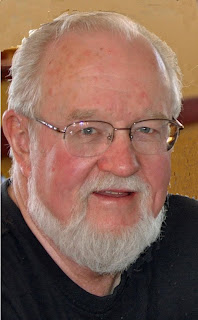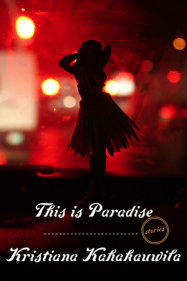Paradise Lost and Found
A review by Michael Casey
A guide for a
tour group on the island of Maui recounted the most surprising question he had
been asked. “Russ, do you ever get sick of all this beauty?” “Sick of beauty”? Russ responded to the query
thoughtfully. “Some people are so
overwhelmed by what they see here, they have no place to put it. And so they can’t grasp it. They get worn out.” The center of this reported dialogue is, of
course, the outer landscape, Hawai’i’s stunning vistas. There is not much of that kind of beauty in
Kristiana Kahakauwila’s debut collection of stories, This Is Paradise. The
terrain the reader is invited to traverse is an inner landscape of
relationships.
In six
stories, most of them longish, Kahakauwila develops narratives in which
individuals are often confused or disappointed by the actions and attitudes of
friends and family. The situations are
etched with a sure hand and a deft stroke.
A specific notable element in the writing of these stories is the use of
Hawaii pidgin. So if you are not native
Hawaiian but haole (Caucasian), you
will find your vocabulary expanded. It’s
a natural métier for stories that involve identity search. And it stimulates
rather than impedes the engagement of the reader. If the context doesn’t carry the denotation,
then look up the meaning. It’s fun to
do.
What is less
fun is the content of some stories. “Wanle”
is the eponymous daughter of a father devoted to cock-fighting. Her lover
abhors the “sport.” When her father dies,
Wanle takes over the enterprise so that her father’s “honor” can be sustained. Conflicts multiply. The characters in this story are convincingly
real and distinct but too much detail and description are layered on the bird
fights. The people are obscured by the
foul battles of the razor equipped fowl.
I found the bird battles not only repugnant in themselves but also oddly
bathetic, in that the attempt to ascribe purported cultural noblility to the
combants and their handlers reaches too far. Another problematic story is “The Road To
Hana.” While the story deals with an
identity theme important to the collection as a whole—“Was local being from a
place, or just of it?”—it squanders its own question when a dog appears in the
road and Becky rescues him with the remark, “He’s lost. We have to find his house.” The parallels to the couple are too
obvious. Finally (on the weak side) is “Thirty
Nine Rules For Making A Hawaiian Funeral Into A Drinking Game.” It’s a series of jokes that take the form of “Have
a Drink When . . . [a cleric or a relative] makes an easily mock-able
statement. It gets old quickly.
The other three
stories, the title tale that opens the collection and two narratives that end
the book, “Portrait Of A Good Father” and “The Old Paniolo Way” are bull’s—eye
works that incorporate Kahakauwila’s
skilled use of language and keen insight into young and old, adult children and
relationships with fathers. In the story
“This Is Paradise” a group of young adult women, out clubbing encounters a
serious misfortune that befalls one of their peers. They are forced to unwanted reflection about
danger and death. The fathers in the
latter two stories are memorable even though they are seen and heard more in
the voices of others rather than through their own.
Kristiana
Kahakauwila is an akamai young writer
who will be around for a long while.
That’s a good thing for the contemporary American short story. It will be interesting to see if Hawai’i remains
at the center of her attention or if she develops other subjects and themes
over time. Either way, it’s a safe bet that her talent will deepen with each
new book.




